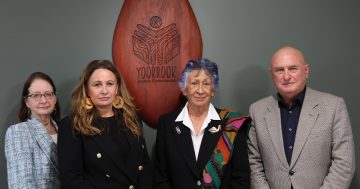 Details on the ACT’s commitment to raise the Minimum Age of Criminal Responsibility (MACR) from 10 to 14 years have been revealed with the release of a position paper on the topic.
Details on the ACT’s commitment to raise the Minimum Age of Criminal Responsibility (MACR) from 10 to 14 years have been revealed with the release of a position paper on the topic.
Releasing the paper Raising the age of criminal responsibility, Attorney-General Shane Rattenbury said the paper summarised key decisions, how the reform would be implemented and how it would inform future discussions with community sector partners.
“In 2023, the ACT Government will move a single Bill to raise the minimum age of criminal responsibility to 12, and then to 14 years within the two years after that,” Mr Rattenbury said.
He said there would be no exceptions to the MACR for children under 12 years – “they will be completely removed from the criminal justice system”.
Mr Rattenbury said however that there would be an option for exceptions for 12- and 13-year-olds, which would enable young people that age to be charged only if they were alleged to have committed the most serious of offences.
The Attorney-General said the two-year transition period for the MACR would allow the Government to put in place the necessary range of social support services needed by children who might otherwise enter the criminal justice system.
“This is a significant and complex change, being led by the ACT, and we will implement it thoughtfully and effectively,” Mr Rattenbury said.
Minister for Families and Community Services, Rachel Stephen-Smith said the Position Paper highlighted the importance of providing holistic and therapeutic supports and services for children and young people who had experienced significant trauma in their lives.
“The aim of MACR reform is to improve outcomes for children and young people who are at risk of encountering the justice system and to improve community safety by preventing escalation of harmful behaviours,” Ms Stephen-Smith said.
“Raising the age alone will not achieve this aim – the alternative service response will be vital.”
The eight-page Position Paper can be accessed at this PS News link.











